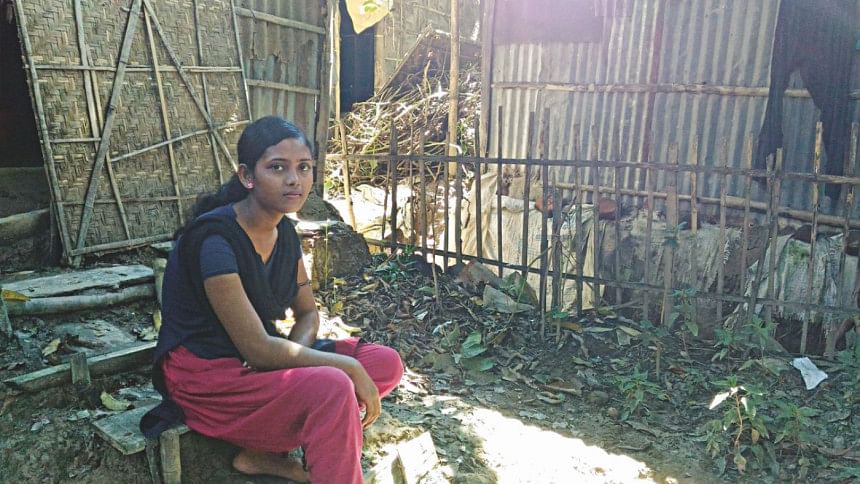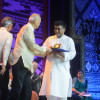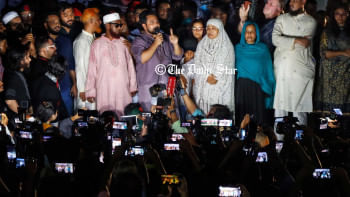Saving Meena's smiles

Save the Children in Bangladesh, in association with JAAGO Foundation and SHOUT, gave me the opportunity to take part in "Bridging the Gap" programme. Under its global Every Last Child campaign, the programme brought people like us closer to disadvantaged children like Meena. Yes, this is the story of Meena Chowdhury, a 16 year old girl, who is struggling with poverty and inadequate facilities.
Bosikhali, a village in Habiganj, is one of the most inaccessible areas in Bangladesh. It is grappling with issues such as poor education, inefficient health services, inopportune communication system and so on. Meena and her family live in this village. Her family consists of her parents and two siblings. Her family and their cattle live in a single thatched house.
According to Meena, the dynamics which adversely affect the education of rural areas are poor economy, lack of access to institutions and concerns regarding quality education. The main problem is transportation. Approximately an area of 7 to 8 kilometers around Bosikhali stays flooded for half a year. At that time, boat is the only means of transportation. Meena cannot attend her classes every day because of this problem as they cannot afford the daily boat fare.
"I go to school, but I cannot afford to go every day, cannot afford tuitions to do better in studies. When I see others, I always wish if I could have all these facilities that an urban child has," she said.
I also spoke to Meena about her future plans. She said that she wants to study in a nursing institute.
"I want to take care of people in my village and offer free medical treatment to them," she mentioned. There are no medical facilities near the village. Sometimes patients breathe their last even before reaching the nearest hospital which is 2 to 3 hours far. But immediately after that she was also being doubtful of achieving her dreams. "Poor financial condition of our parents force us to sacrifice our dreams," Meena grieves.
I remember the first thing I noticed about Meena – it was her smile. She welcomed me graciously with a smile but as our conversation progressed, it turned into sorrow.
Meena is just one of the millions of deprived, neglected, disadvantaged children across Bangladesh. Like every child, Meena too deserves a chance to make her dreams come true. I truly want to be the bridge that these children need in order to have a new life for themselves, for their family, their community and the entire world.
The writer is a freelancer.

 For all latest news, follow The Daily Star's Google News channel.
For all latest news, follow The Daily Star's Google News channel. 






Comments